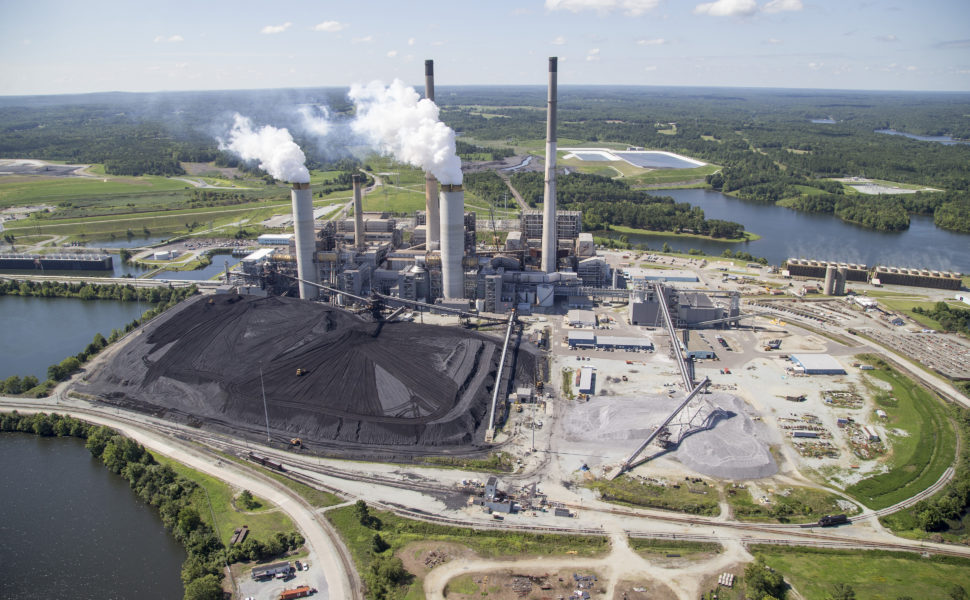After a restful and enjoyable time with my family over the Thanksgiving holiday, I’ve extended my stay here in Charleston, West Virginia, to testify at the Environmental Protection Agency’s hearing on its proposed repeal of the Clean Power Plan. I’ll be speaking tomorrow morning. Below are my prepared remarks.
Testimony of Dr. Jeremy Richardson at EPA’s Public Hearing on Repealing the Clean Power Plan, on behalf of the Union of Concerned Scientists
Remarks as Prepared
I stand before you today as the brother, son, and grandson of West Virginia coal miners. And at the same time, I am also a senior energy analyst at the Union of Concerned Scientists, where I focus on the US power sector and how the clean energy transition already underway can help us address the urgent threat of climate change. As you might imagine, we have interesting discussions at our house over Thanksgiving!
Like so many others here today, my family has helped keep the lights on in this country for generations—and also like many of you, I’m deeply proud of that history. And yet, things are changing—fast. My research confirms something you probably already know: coal has become increasingly uneconomic compared with cheaper, cleaner forms of energy like natural gas and renewable energy—and this market trend is going to continue.
But these days it feels like facts don’t matter—and that’s very disturbing to a scientist like me. So, just for the record, allow me to state some things that are true and obvious, but seem to have been forgotten in the rhetoric around these issues.
First, coal miners and coal communities are suffering. The job losses experienced—especially over the last five to ten years—have been devastating for families and communities. But—the primary driver of the decline of coal is economics. Coal can no longer compete with cleaner and cheaper ways to generate electricity—largely natural gas, with renewables increasingly beating coal in some parts of the country. And coal mining jobs have been declining since the middle of the last century because of mechanization, the shift to cheaper, large-scale surface mining operations out West, and geologic realities that have led to declining productivity in Appalachian coal mines. It is easy to blame the policies of the last president for all of coal’s problems, but it simply isn’t true.
Second, it is the job of the Environmental Protection Agency to protect human health and the environment. It is not the job of the EPA to protect the coal industry. In fact, the EPA is bound by law to address air and water pollutants from producing and using coal. Many of these pollutants are hurting the health of communities right here in Appalachia, where acid mine drainage and coal ash contaminate our waterways, and are also causing harm around the country where people live downwind from coal-fired power plants. The EPA is also legally required by the Clean Air Act to curtail global warming emissions from power plants because science shows that climate change poses risks to our health and the health of future generations.
This brings me to my third point, that climate change is real, period. It is primarily caused by human activities—including the burning of fossil fuels like coal, natural gas, and oil. Despite what you may have heard or read, this is not disputed by any expert on the issue. The recently released National Climate Assessment special report confirms what we already knew—we are observing the impacts of climate change now, and left unchecked it will likely get much worse. And importantly, we can still avoid some of the worst consequences—if we act fast.
The Clean Power Plan was an important step toward reducing emissions from one of the largest sources of US carbon emissions. Nationally, it also would have provided significant economic and public health benefits by lowering other pollutants and encouraging growth in the renewable energy industry. That is why I am here today to voice UCS’ opposition to the repeal of the Clean Power Plan.
My dad, who is a retired longwall maintenance foreman believes that climate change is real. He also understands that coal represents good paying jobs for our state. So do I.
When I left behind my previous research in astronomy more than 10 years ago, I did so because I was deeply passionate about addressing the threat of climate change. The truth is, the often-vilified environmental activists are worried about climate change because of its impacts on people. For me, I don’t really care about what happens to the polar bears—but the reality of melting ice is truly a canary in the coal mine, and the potential impacts on humans and human civilization are deeply frightening.
According to the latest scientific assessment, sea levels are expected to continue to rise by at least a few more inches in just the next 15 years, and from 1 to 4 feet or more by 2100. Tidal flooding in communities along the US East and Gulf Coasts has increased in recent decades, and is expected to get much worse in the coming decades. An analysis by Climate Central finds that depending on emissions level, between 147 and 216 million people worldwide are at risk of living on land that is below sea level in 2100. And that may be a conservative estimate, based on current population estimates and data limitations, and the authors suggest the number may be much higher—around 300 to 650 million people.
Heavy rainfall is increasing in both intensity and frequency across the United States, with the largest increases observed in the Northeast region, which includes West Virginia. Changes in extreme precipitation can lead to catastrophic flooding, like the state experienced during the historic floods of June 2016.
Even as I changed careers, I recognized that we must reduce emissions to address climate change—and that means changing how we produce energy. But I have been wrestling with a nagging question—what does a low carbon future mean for a place like West Virginia, a place I still call home?
The challenge before us is that we must figure out how to solve both problems—bringing down carbon emissions so that we protect people all around the world who are facing the impacts of climate change, and simultaneously investing in new economic opportunities in the very places where people depend on coal for their livelihoods.
As a start, we must increase federal spending targeted at economic development and economic diversification in coal country. If the current administration really cared about coal communities, it would be doubling down on those investments, not cutting federal programs, like the Appalachian Regional Commission and the Economic Development Administration, that support communities here and around the region.
I am here to tell you that it’s time we tone down the rhetoric on this issue. It’s not as if there was a “war on the horse and buggy” a hundred years ago. No, something better came along: the automobile.
Today we are seeing solar panels go up on homes and businesses right here in West Virginia, no thanks to state policies, but rather due to some intrepid business leaders who see the future and want our state to be a part of it. We need to collectively support those efforts, not because we’re anti-coal, but because we deserve to be a part of the clean energy economy that is emerging all around us.
This hearing, and this entire process to derail action to address climate change, are distracting us from the real work at hand.
We must not only work to protect the planet’s climate through strong carbon standards, but also ensure that we invest in workers and communities to spur new economic opportunities right here in the heart of Coal Country.
I do not accept that this is an “either-or” proposition.
The Union of Concerned Scientists stands ready to do its part.
Thank you.
Dr. Jeremy Richardson
Senior Energy Analyst, Union of Concerned Scientists

